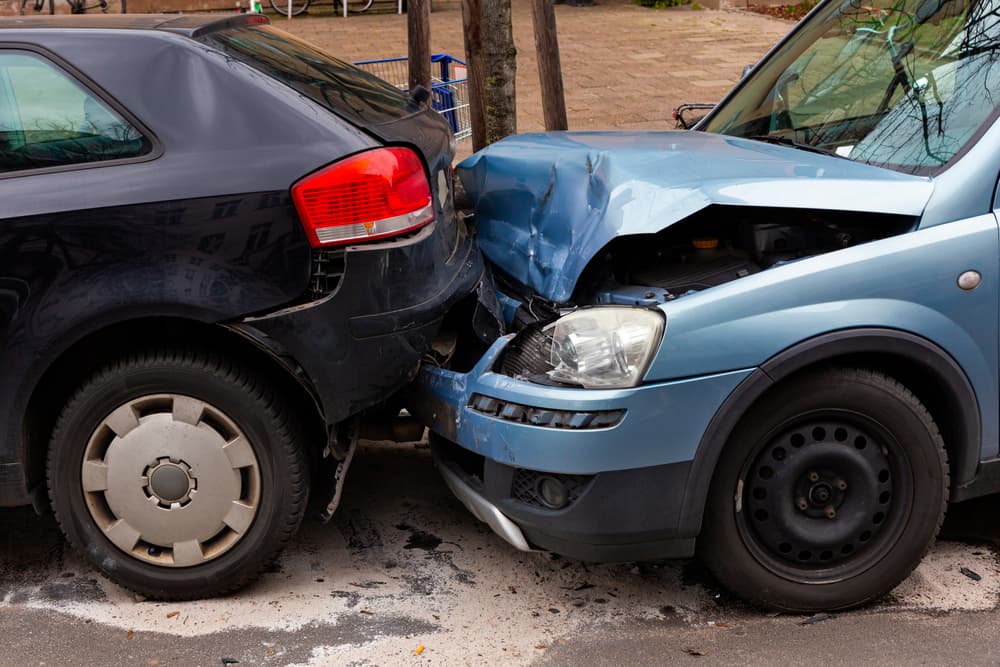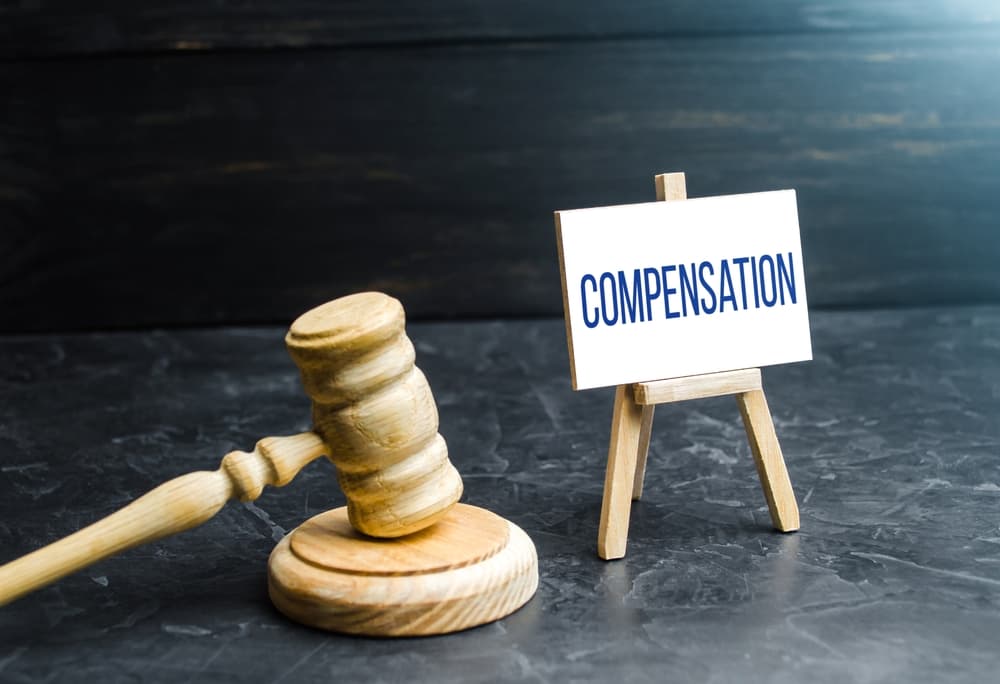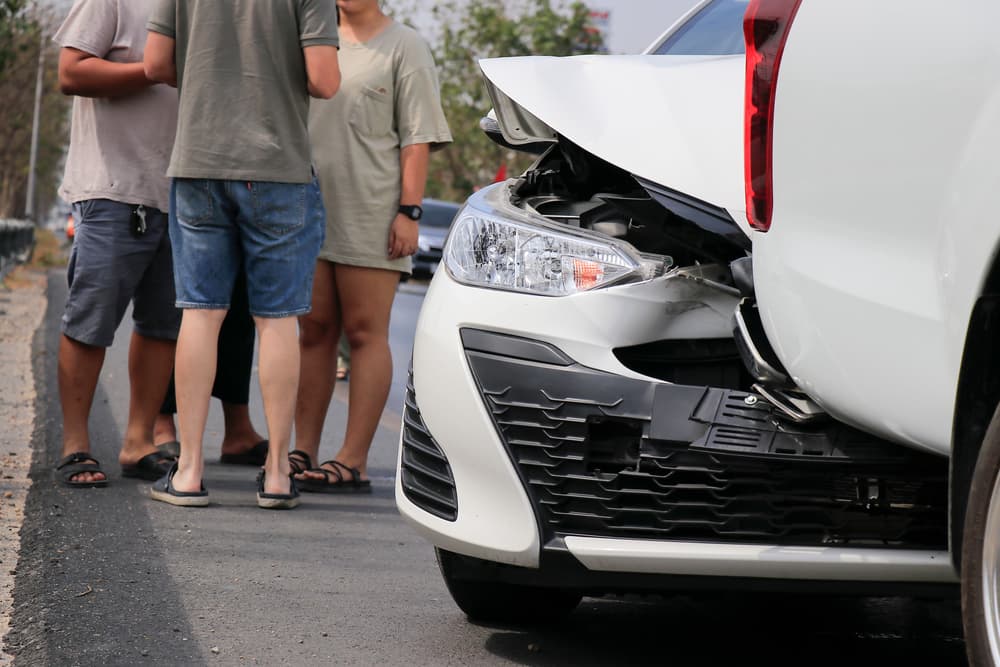After you suffer injuries in a rear-end collision, you're likely wondering who pays for rear-end collisions and how you can recover compensation for your losses.
You're facing mounting medical bills and time away from work on top of physical and emotional pain. You shouldn't have to shoulder these burdens alone when another driver's carelessness caused your injuries.
You need support during this difficult time to navigate the complex legal process and obtain compensation from those responsible.
A Wisconsin car accident attorney can guide you through the process of seeking fair compensation for your injuries and other losses. They'll work to protect your rights and handle the legal complexities while you focus on healing. Reach out to a qualified car accident lawyer in your area for a free consultation to discuss your case and explore your options.
Rear-End Collision Statistics

Rear-end collisions happen frequently on roads across the United States, often resulting in serious injuries and property damage. Consider the following facts and statistics regarding these types of crashes:
According to a study the National Highway Traffic Safety Administration (NHTSA) conducted, rear-end collisions occur the most frequently of all auto accidents. They account for around 29% of all vehicle crashes and result in a “substantial number of injuries and fatalities each year.”
However, this is an average estimate. The National Safety Council’s Injury Facts reports far higher numbers for one recent year:
- Approximately 12,800,000 total vehicle crashes occur nationwide in caused injuries or fatalities
- Rear-end collisions accounted for nearly 41% of those wrecks, far more than the percentage of other crash types (e.g., head-on collisions, angle collisions).
- Around 3,680,000 people sustained an injury or died in rear-end collisions across the country.
These numbers highlight just how frequently rear-end accidents occur and their potential for causing harm. When exploring the causes, liability issues, and compensation process for these collisions, each case brings its own unique circumstances.
An experienced car accident attorney can provide personalized guidance tailored to your specific situation and help you get monetary compensation if someone causes a rear-end accident that hurts you.
Common Causes of Rear-End Collisions
Several factors contribute to rear-end collisions.
Understanding these causes can help you avoid accidents and strengthen your case if another driver's negligence injures you.
- Distracted driving: Drivers who text, eat, adjust the radio, or engage in other distracting activities while behind the wheel often fail to notice slowing or stopped traffic ahead. This lack of attention frequently leads to rear-end collisions.
- Tailgating: Following too closely leaves drivers with insufficient time to react if the vehicle ahead suddenly slows or stops. Tailgating significantly increases the risk of rear-end accidents, especially at higher speeds.
- Sudden stops: When a driver brakes abruptly, those following may not have enough time to react and stop safely. While the rear driver typically bears responsibility, sudden stops without good reason can sometimes shift partial fault to the lead driver.
- Weather conditions: Rain, snow, ice, and fog reduce visibility and make roads slippery. These conditions increase stopping distances and make it harder for drivers to maintain control of their vehicles, contributing to rear-end collisions.
No matter how careful you are, you can still fall victim to another driver’s careless actions. Consult a car accident lawyer as soon as possible after a wreck to protect your rights and pursue just compensation.
Determining Liability in Rear-End Accidents
Establishing who bears legal responsibility for a rear-end collision forms a critical part of any accident claim. While the rear driver often carries the blame, exceptions exist. Here are some common considerations for determining liability in a rear-end collision:
Presumption of Fault for Rear Driver
In most cases, the law presumes the rear driver bears fault for a rear-end collision. This presumption stems from the expectation that drivers maintain a safe following distance and remain alert to traffic conditions ahead. When a rear-end crash occurs, insurance companies and courts typically start with the assumption that the trailing driver failed to exercise proper caution.
Exceptions to the Presumption
While the rear driver usually bears responsibility, situations arise where liability shifts partially or entirely to the lead driver.
Some examples include:
- The front vehicle reversed suddenly
- The front driver's brake lights malfunctioned
- The lead driver stopped abruptly for no valid reason
- The front vehicle had a flat tire but failed to use hazard lights or pull over
Comparative Negligence in Some Jurisdictions
Some states follow comparative negligence laws, which allow for shared fault in accidents. In these jurisdictions, multiple parties may bear a percentage of responsibility for a crash. Your potential compensation could be reduced based on your assigned percentage of fault.
An attorney can explain how comparative negligence laws might affect your case.
Determining liability often requires a thorough investigation of the accident scene, witness statements, and potentially expert analysis. A skilled car accident lawyer can gather and present evidence to support your claim, especially in cases where liability isn't immediately clear.
Types of Damages an Attorney Can Help You Recover
After a rear-end collision, you may face many expenses and losses. A knowledgeable car accident attorney can help you pursue compensation for various types of damages, ensuring you receive fair reimbursement for both your economic and non-economic losses.
Here's an overview of the primary categories of damages a lawyer can help you recover:
Property Damage
This category covers repairs or replacement of your vehicle and any other personal property damaged in the crash. It may also include compensation for a rental car while yours is being repaired.
Medical Expenses
From emergency room visits to ongoing physical therapy, rear-end collisions often result in significant medical costs.
Your claim should account for all accident-related medical expenses, including:
- Hospital bills
- Doctor's visits
- Prescription medications
- Rehabilitation services
- Medical equipment (like crutches or braces)
- Future medical care related to your injuries
Lost Wages
If your injuries force you to miss work, you deserve compensation for those lost earnings. This category also includes potential future income losses if your injuries impact your long-term earning capacity.
Pain and Suffering
Unlike the tangible costs above, pain and suffering damages compensate you for the physical discomfort and emotional distress caused by the accident and your injuries. While harder to quantify, these non-economic damages often form a significant part of rear-end collision claims.
Other potential damages may include:
- Loss of enjoyment of life
- Permanent disability or disfigurement
- Loss of consortium (impact on marital relationship)
An experienced car accident attorney will carefully evaluate all aspects of your case to ensure every applicable damage category gets included in your claim.
They'll work to build a strong case that fully illustrates the impact of the accident on your life, helping you pursue maximum compensation for your losses.
Insurance Coverage Considerations
Navigating the complex world of insurance coverage after a rear-end collision requires knowledge and skill.
An attorney understands how to deal with insurers, and some aspects of insurance coverage you need to keep in mind as they help you navigate your rear-end accident claim include:
- At-fault Driver's Liability Insurance: In most cases, the at-fault driver's liability insurance serves as the primary source of compensation for your damages. Every state requires drivers to carry a minimum amount of liability coverage, but these minimums often fall short of covering serious injuries. If your damages exceed the at-fault driver's policy limits, you may need to explore additional options.
- Victim's Personal Injury Protection (PIP) Coverage: Some states, like Minnesota and North Dakota, require drivers to carry Personal Injury Protection (PIP) insurance, while others, like Wisconsin, allow it as an add-on to your policy. This no-fault coverage pays for your medical expenses and lost wages up to your policy limit, regardless of who caused the accident. In states with PIP requirements, you typically must exhaust your PIP benefits before pursuing a claim against the at-fault driver.
- Uninsured/Underinsured Motorist Coverage: If the at-fault driver lacks insurance or carries insufficient coverage to fully compensate you, your own uninsured/underinsured motorist (UM/UIM) policy can help fill the gap. This valuable coverage protects you when the responsible party can't adequately cover your losses.
Additional considerations:
Some policies include medical payments coverage (MedPay), which can help with immediate medical expenses regardless of fault.
In cases involving severe injuries, the at-fault driver may have an umbrella policy that provides additional liability coverage beyond their auto insurance limits.
Insurers may attempt to minimize your claim or shift blame to avoid paying fair compensation. An experienced car accident attorney can handle all communications with insurance companies on your behalf, protecting your rights and advocating for the full compensation you deserve.
Steps to Take After a Rear-End Collision to Protect Your Rights to Compensation

If you're reading this sometime after your accident, you've likely already received medical treatment and are now considering your options for obtaining compensation. Your primary concern at this point is how to recover financially from your injuries and losses.
Contacting a car accident lawyer should be one of your first steps.
An attorney will:
- Review the details of your accident, assess liability, and determine the potential value of your claim.
- Collect police reports, witness statements, medical records, and other crucial evidence to support your case.
- Deal with insurance companies and other parties on your behalf, protecting you from potentially damaging statements.
- Negotiate effectively with insurance companies to maximize your settlement.
- File a lawsuit for you and represent you in court if the insurance company won’t offer a fair settlement or acts in bad faith
By working with an attorney, you'll have a knowledgeable advocate fighting for your rights and interests throughout the claims process.
Potential Complications in Rear-End Collision Cases
Some rear-end collision cases involve additional complexities that require careful handling.
- Multiple vehicle pile-ups: When several vehicles are involved in a chain-reaction crash, determining liability becomes more complicated. Your attorney will work to identify all responsible parties and pursue compensation from each.
- Commercial vehicle involvement: Accidents involving commercial trucks or company vehicles may involve multiple insurance policies and corporate entities. These cases often require specialized knowledge of commercial vehicle regulations and liability issues.
- Disputes over injury severity: Insurance companies sometimes downplay the seriousness of injuries to minimize payouts. Your lawyer will work with medical experts to document the full extent of your injuries and their impact on your life.
An attorney offers peace of mind during a stressful time by handling the legal aspects of your case while you focus on recovery. They'll support you throughout the claims process, answering your questions and keeping you informed about the progress of your case.
Contact a Car Accident Lawyer for Help
Protecting your rights after a rear-end collision ensures you receive fair compensation for your injuries and losses. Don't let insurance companies or at-fault parties take advantage of you during this vulnerable time.
Nicolet Law Accident & Injury Lawyers understands the challenges you face after a rear-end collision.
Our experienced Wisconsin personal injury attorney will fight hard to secure the compensation you deserve. We offer personalized attention, clear communication, and a proven track record of success in handling car accident cases.
Begin the process of recovery by contacting Nicolet Law Accident & Injury Lawyers for a free consultation. We'll review your case, answer your questions, and help you understand your options for moving forward.
Don't wait to get the legal support you need. You need to start the process quickly so your lawyer can collect and preserve valuable evidence and file your claim on time.
